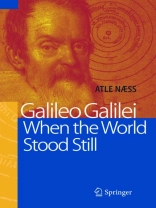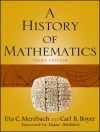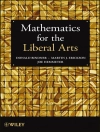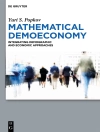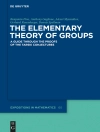‚I, Galileo, son of the late Vincenzio Galilei, Florentine, aged seventy years …kneeling before you Most Eminent and Reverend Lord Cardinals …I abjure, curse, detest the aforesaid errors and heresies.‘
Galileo Galilei in Rome, 22 June 1633, before the men of the Inquisition.
In the small village of Arcetri, on a wooded hillside just south of Florence, an old man sat writing his will. He had to make a journey to Rome and wanted to be prepared for every eventuality. If the plague did not get him on the road, the strain of travelling might finish him off; in addition he had been ill most of the autumn, with dizziness, stomach pains and a serious hernia. And even if he survived these difficulties, and the cold winter wind from the Apennines did not give him pneumonia, he had no idea what awaited him in Rome, only that his arrival was unlikely to be celebrated with a special mass.
The mathematician and physicist Galileo Galilei is one of the most famous scientists of all times. The story of his life and times, of his epoch-making experiments and discoveries, of his stubbornness and pride, of his patrons in the house of Medici, of his enemies and friends in their struggle for truth – all is brought vividly to life in this book. Atle Næss has written a gripping account of one of the great figures in European history.
He was awarded the Brage Prize, the most prestigious literary prize in Norway.
Inhaltsverzeichnis
Prologue: A journey to Rome.- The musician’s son.- A gifted young Tuscan.- To Rome and the Jesuits.- A Surveyor of Inferno.- The spheres from the tower.- From Pisa to Padua.- Signs in the sky.- De Revolutionibus Orbium Coelestium.- Lecturer and designer.- A professor’s commitments.- Modern physics is born.- A new star in an unchanging sky?- Drawing close to a court.- The balls fall into place.- The Roman style.- The tube with the long perspective.- A new world.- Jupiter’s sons.- Johann Kepler, Imperial Mathematician.- Several signs in the sky.- Friendship and power.- A dispute about objects that float in water.- Sun, stand thou still upon Gibeon!- The letter to Castelli.- ‚How to go to heaven, not how the heavens go‘.- Foolish and absurd in philosophy, formally heretical.- The hammer of the heretics.- Deaths and omens.- Comets portend disaster.- Weighing the words of others on gold-scales.- A marvellous combination of circumstances.- War and heresy.- European power struggle and Roman nephews.- The old and the new.- ‚An advantageous decree‘.- Two wise men – and a third.- The Inquisition’s chambers.- Diplomacy in the time of the plague.- An order from the top.- ‚Nor further to hold, teach, or defend it in any way whatsoever‘.- Convinced with reasons.- ‚I, Galileo Galilei‘.- Eternity.- A death and two new sciences.- The meeting with infinity.- ‚That universe … is not any greater than the space I occupy‘.- Epilogue.- Postscript.- Appendix.- Sources.- Name Index.- References.
Über den Autor
The author was born in 1949. He studied language and literature at Oslo University and worked for some years as a teacher at various levels before becoming an independent writer of novels and non-fiction. Among his books is a novel about the Italian painter Caravaggio, translated into English under the title ‚Doubting Thomas‘ [in German as ‚Caravaggio’s Flucht‘]. His biography of Galileo won the Brage Award for best Norwegian non-fiction book in 2001. Næss‘ most recent work is a biography of the Norwegian painter Edvard Munch.
